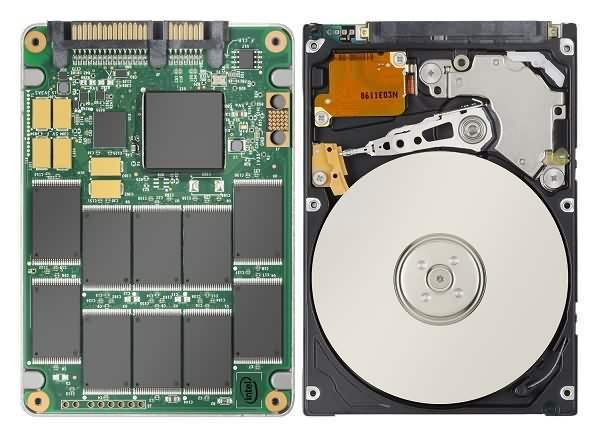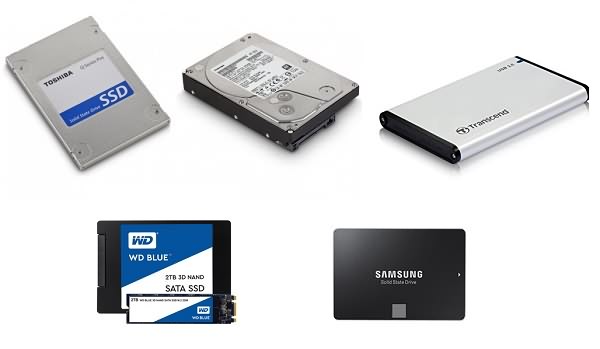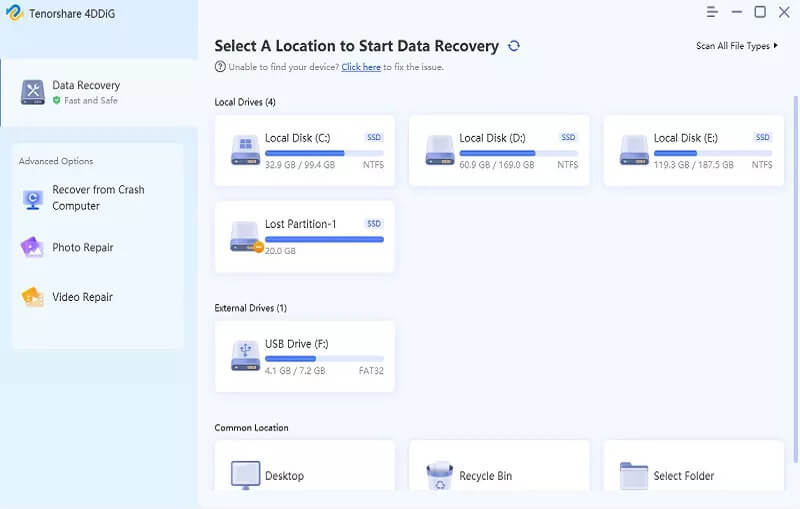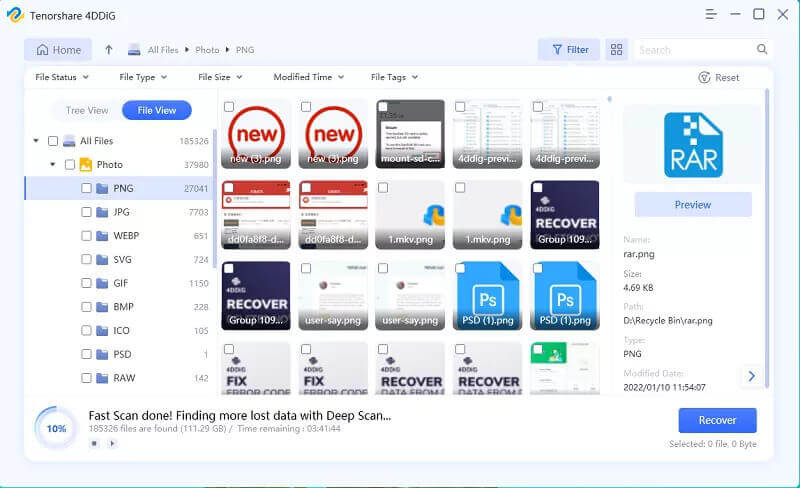SSD Data Recovery: Recover Data from Solid State Drive

“My HP Envy 15 laptop’s MSATA SSD drive has failed. I ran HP diagnostics and the results indicated that the SSD failed. I’ve ordered a new SSD drive and now I just recover data from the old SSD hard drive. How can I do so?”If you are having a similar issue, needing to recover deleted data from SSD hard drive or rescue files from failed or dead SSD, this post has covered all you need to know about SSD Data Recovery for Samsung, Toshiba, WD, Crucial, Transcend, SanDisk, ADATA and more.
What Is a Solid State Drive (SSD)
Solid State Drive (SSD) is a kind of storage device that uses solid-state electronic memory chips to read and write data. Compared with HDD which uses rotating disks with magnetic heads to store data, SSD is more reliable.
- SSD drive provides faster read and writes speed, thus laptops powered by SSD boot faster and run apps faster.
- Since SSD doesn’t have moving parts, it is less susceptible to mechanical failures such as shock, extreme temperature, and physical vibration, and thus it is more durable than a hard disk drive.
- As SSD doesn’t need to spin up a platter as HDD does, solid-state drives consume less battery.
- SSD is also smaller in size.

Featuring great reliability and faster speed, SSD is now a preferable storage option for many users. Accordingly, the price of SSD is higher.
Data Loss on SSD
Despite that SSD is less prone to physical damage, SSD drives could also fail sometimes and cause data loss. Unlike a failing HDD which you can tell from grinding noise or new buzz, a failing SSD doesn’t show any sign and stops working suddenly.
Here are some situations you may lose data on an SSD hard drive.
- SSD failed due to firmware corruption, components degrading from use, electrical damage, etc.;
- Accidentally delete data from SSD;
- Format the SSD drive or lost or missing partition on an SSD hard drive;
- Virus infection.

Is Possible to Recover Data from a Failed SSD?
It is possible to recover data from SSD with suitable SSD recovery software, even if the SSD hard drive is failed.
But there is a thing you should notice if you need to recover deleted files from SSD hard drive. Recovering deleted data from SSD is more difficult than recovering files from a traditional hard disk drive because some SSD hard drives may have enabled a new technology called TRIM.
In a hard disk drive, when a file is deleted, only its index is removed while the file still exists on the drive. However, with TRIM enabled, the Windows system automatically deletes unused or system-deleted files. TRIM can help to extend the life span of an SSD drive, however, it makes it impossible to recover deleted data from SSD with TRIM enabled.
Therefore, to recover deleted data from SSD, you should make sure one of the following is true.
- TRIM is disabled on your Windows 10/8/7 computer. You can check it with the command: fsutil behavior query disabledeletenotify. If the result shows: DisableDeleteNotify = 1, the feature is disabled.
- If you’re using an SSD hard drive on a Windows XP device, SSD data recovery won’t be a problem since XP doesn’t support TRIM.
- Your SSD hard drive is old. An old SSD hard drive usually doesn’t support TRIM.
- Ttwo SSDs forms a RAID 0.
- You are using the SSD as an external hard drive.
Since SSD data recovery is possible, you may follow the steps below to recover data from SSD hard drive.
Best SSD Data Recovery Software: Data Recovery
Data Recovery is the SSD recovery software that can undelete data from an SSD drive and recover lost files from SSD caused by formatting, missing partition on SSD, raw SSD hard drive, SSD failures, and system crashes. This SSD data recovery program is extremely easy-to-use and takes only several steps to recover files, photos, videos, and audio from SSD.
It supports data recovery from SSD hard drive including Transcend, SanDisk, Samsung, Toshiba, WD, Crucial, ADATA, Intel, and HP.
Step 1. Download and install Data Recovery on your computer.
Step 2. Open the SSD data recovery, and select documents, photos, or other types of data you want to recover.
Step 3. Select the drive that has deleted or lost data. If you use the SSD drive as an external hard drive, connect the drive to the computer via USB and select Removable Drive.

Step 4. Click Scan. The program will first quickly scan the SSD hard drive and display the files it has found. If you need to find more files, click Deep Scan and all files on the SSD drive will be displayed.

Step 5. Select the lost or deleted files you need and click Recover to retrieve them to the location you choose.

Even though data recovery from an SSD drive is possible, you should note down these tips to avoid data loss on SSD drives in the future.
Back up essential files on SSD to another storage device; Stop using the SSD drive once data loss happens.
How useful was this post?
Click on a star to rate it!
Average rating / 5. Vote count:


